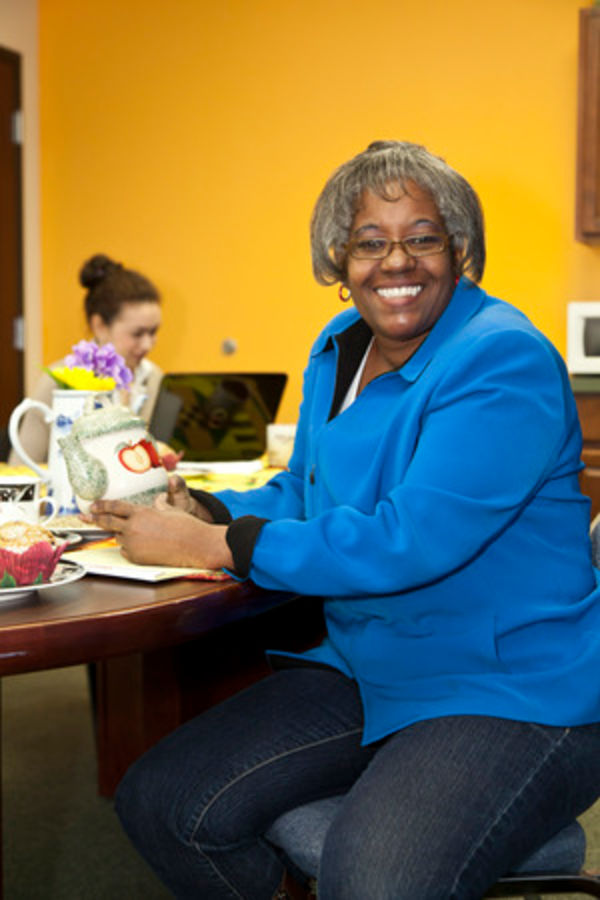Leeretta's The Legacy Café nears grand opening
July 18, 2013
Leeretta Payne was speaking to a group of potential Kiva Zip borrowers at the Pittsburgh Public Market last week when she paused and gave a fundamental piece of advice: don't borrow more than you need and know exactly, down to the penny, for what you are going to use the loan. The source of that advice is trustworthy. Payne is the owner and operator of The Legacy Café and a Kiva Zip borrower herself. As she nears the grand opening of her storefront (to be located in August Wilson's childhood home at 1727 Bedford Avenue in Pittsburgh's Hill District), she is ahead of her repayments.
For now, Payne is running a very, very successful catering service as she awaits renovations of her space, a recently designated National Historic Landmark. Her clients range from small companies to large corporations and universities, and her small business is booming. Payne has developed a particularly close relationship with Duquesne University, which is not only her client but also a valuable resource. Professionals at Duquesne's Small Business Development Center introduced her to the team at Urban Innovation21, a neighborhood-based nonprofit in the heart of the Hill District that helped her to develop a business plan. Urban Innovation21 had confidence in her work and and became her Kiva Zip trustee earlier this year.
"I figured that since I stayed long hours for an employer, worked weekends, worked holidays, worked at night—I was on call—I might as well do that for myself," Payne said. "And it can be a bit of a challenge, it can be scary, but you just have to go ahead, just like the first time you're swimming, just jump right in, start in the shallow, and work your way out and you'll be okay."
She used the loan to buy equipment for her café, buy more supplies for her catering service, and buy QuickBooks for her laptop. She is also planning to hire several people to help her run The Legacy Café.
"That's one of my goals also: always hire people who are in the community to work," Payne said. "I'm talking to people at [the Office of Vocational Rehabilitation] so they can help me find me someone who's [cooked] before, or someone who's been formerly incarcerated, they do a lot of that in jail also. You know, those are some of the qualifications I'm looking for, because sometimes it's easy if you've been formerly incarcerated, it's easy to say 'go get a job,' but a lot of times people won't hire you, but giving them a second chance is going to work out I'm sure."
Now that Payne has gone through the Kiva Zip process as a borrower, she is eager to become a trustee herself. She is passionate about helping others and about helping her community.
"I'm showing my sons, especially my younger son, open your own business. In the African American community, unfortunately sometimes, you don't talk to young people about opening their own business, as opposed to getting a job," Payne said.
If she has anything to do with it, that frame of mind will soon change.
PREVIOUS ARTICLE
Party Like it's 1799/The Idyllic Dacha Life →NEXT ARTICLE
New Field Partner: Assilassimé provides credit to vulnerable communities in Togo →













